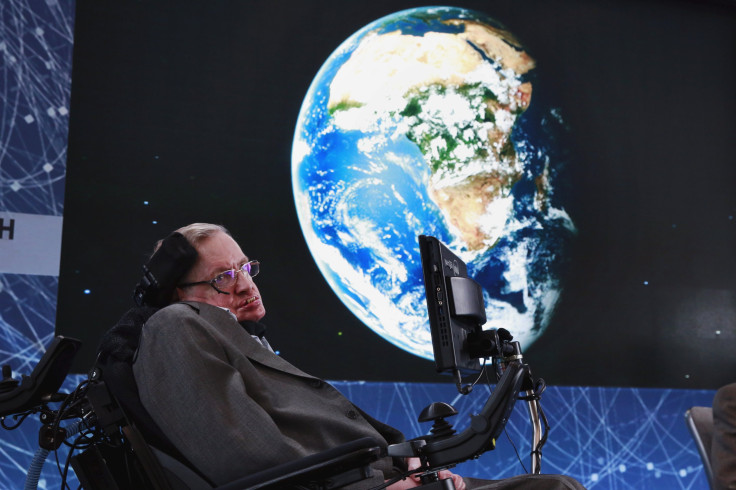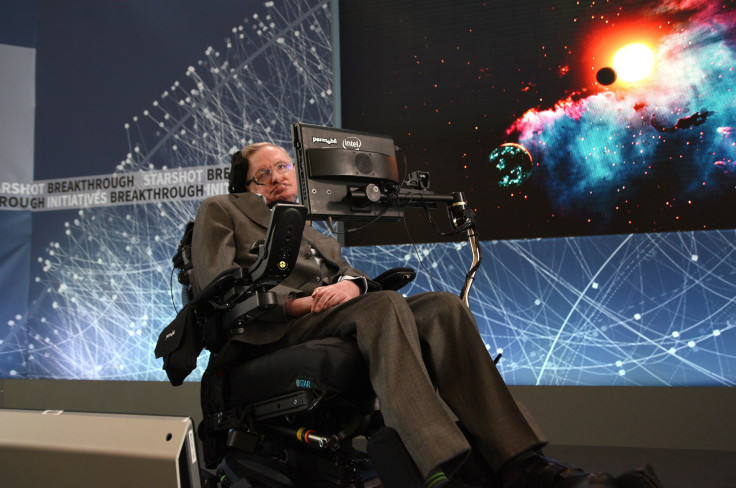Stephen Hawking’s Top Predictions About Space, AI And Humanity

One of the most celebrated physicists of our time, Stephen Hawking, died at the age of 76. The British scientist was known for his pioneering work on black holes and relativity, and has authored several popular books.
In 2017, Cambridge University made Hawking’s PhD thesis, which he completed in 1966, available to the public.
“By making my PhD thesis Open Access, I hope to inspire people around the world to look up at the stars and not down at their feet; to wonder about our place in the universe and to try and make sense of the cosmos,” Hawking said in a statement at that time. “Anyone, anywhere in the world should have free, unhindered access to not just my research, but to the research of every great and enquiring mind across the spectrum of human understanding.”
There was so much interest in Hawking’s thesis the university’s website crashed as thousands of people raced to read it.

Hawking was diagnosed with motor neurone disease at the age of 21 in 1963. Although doctors expected him to live for only a few more years after the diagnosis, Hawking lived for over 50 years more.
Hawking was, perhaps, most renown for making bold predictions about the future, especially highlighting the potential dangers of artificial intelligence (AI), the need for humans to explore space and the threatened demise of the human race.
In remembrance of the great physicist, International Business Times compiled a list of five of Hawking’s most famous predictions.
Hawking on AI – it will either “transform or destroy” society
In 2016, while speaking at an event celebrating the launch of Cambridge University’s AI center, Hawking declared AI would either transform or completely destroy our society.
“Success in creating AI, could be the biggest event in the history of our civilization,” Hawking said. "But it could also be the last, unless we learn how to avoid the risks. Alongside the benefits, AI will also bring dangers, like powerful autonomous weapons, or new ways for the few to oppress the many.
"It will bring great disruption to our economy. And in the future, AI could develop a will of its own - a will that is in conflict with ours,” Hawking added. “In short, the rise of powerful AI will be either the best, or the worst thing, ever to happen to humanity.”
AI will replace humans
In an interview with the Wired, Hawking expressed concerns about AI potentially replacing humans.
"I fear that AI may replace humans altogether. If people design computer viruses, someone will design AI that improves and replicates itself. This will be a new form of life that outperforms humans."
Hawking’s version of the end of the world – humans will be wiped out in 100 years
Although Hawking has made several doomsday predictions over the past few years, one such prediction he made last year is considered to be the direst. According to Hawking, humanity is fast approaching the risk of being completely wiped out by the end of the century.
"I don't think we will survive another 1,000 years without escaping beyond our fragile planet," he said, while giving a speech at the Oxford Union.
Hawking on nuclear weapons – only a “world government” can save us from nuclear war
The physicist believed the world was at an increasing risk from a potential nuclear or biological war.
“Since civilisation began, aggression has been useful in as much as it has definite survival advantages. It is hard-wired into our genes by Darwinian evolution,” Hawking told the Times. "Now, however, technology has advanced at such a pace that this aggression may destroy us all by nuclear or biological war. We need to control this inherited instinct by our logic and reason.”
Although he suggested some form of “world government” could help, he also warned such a power source may also “become a tyranny.”
Hawking on space exploration – it may be humanity’s only hope of survival
Hawking believed in order for the human race to survive for another 1,000 years, we must “actively pursue an alternative way of living.” The physicist suggested humans should look to space and explore the colonization of planets suitable for human habitation.
“My preference would be to pursue rigorously a space-exploration programme, with a view to eventually colonising suitable planets for human habitation. I believe we have reached the point of no return,” Hawking told the Wired. “Our Earth is becoming too small for us, global population is increasing at an alarming rate and we are in danger of self-destructing. Whether this would be the result of damage to the environment or a nuclear war of devastating proportions, we need to actively pursue an alternative way of living if the human race is to survive for another 1,000 years.”
© Copyright IBTimes 2024. All rights reserved.





















